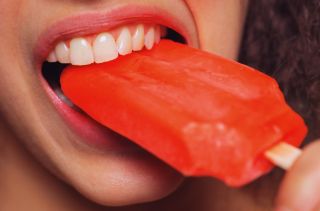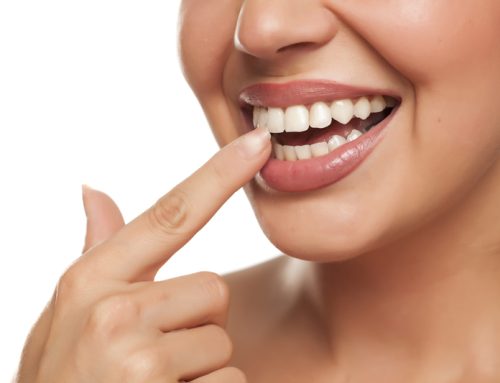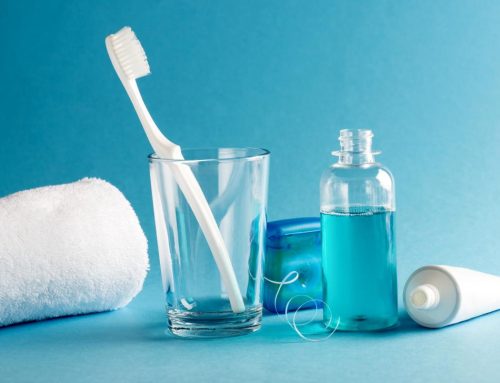Do your teeth react to anything that goes into your mouth? Do you feel some sort of discomfort from cold, iced or hot beverage? Perhaps, you find yourself flinching during brushing or flossing? When experiencing these, there’s a possibility that you have what is called tooth sensitivity. Folks with sensitive teeth may notice pain or discomfort as a result of certain things that go into their mouth. This discomfort may be at the roots of the affected teeth, making the gums excruciating.
There are quite a number of reasons you could be experiencing tooth sensitivity, a lot actually, but we will look at the most common causes, which include:
1. Foods: the food you eat plays a major role in your oral health. Foods that are acidic, hard and tough can harmful to your teeth. These include tomato sauce, lemon, grapefruit, kiwi and pickles. Beverages such as juices, sports drinks and citrus fruits can also contribute immensely to tooth sensitivity. The good news is that staying away from these foods can help in reducing tooth sensitivity.
2. Brushing Too Hard: overbrushing or brushing too hard is another basic factor that leads to tooth sensitivity. This act of overbrushing includes brushing your teeth with all your might; not minding the harm it may cause you, and using hard bristled toothbrush to brush your teeth. These can unarguably lead to tooth sensitivity. You might think these methods of brushing are the best, but ironically, you are causing more damage to your teeth than your true intention, which is to make your teeth super clean. You obviously don’t need a super power to make your teeth clean. Mild brushing with a soft bristled toothbrush will do just a perfect job.
3. Tooth Grinding: grinding of teeth is another major factor that leads to tooth sensitivity. Your tooth enamel, being the strongest substance in your body doesn’t stop it from wearing out when you indulge yourself in the habit of tooth grinding. This habit, in turn, automatically exposes the dentin, which contains the hollow tubes that lead to your nerves. This said habit of tooth grinding leads to tooth sensitivity. The good thing here is the fact it has a solution. The best thing to do, if you are a tooth grinder, is to pay your dentist a visit and talk to him/her about it. He/she will then tell you what to do, which usually, is getting a mouth guard that will prevent you from grinding your teeth.
4. Chewing Ice: in as much as it seems enjoyable, it is not a healthy oral habit. Hence, if you are an ice chewer, you should get rid of the habit asap because it can lead to tooth sensitivity. This is because chewing ice possibly cracks your teeth enamel. As time goes on, the ice grinds down your enamel, leaving you devastated. So, it is not advisable to chew ice because the damage is far more than the present pleasure it gives.
5. Gum Disease: in discussing the causes of tooth sensitivity, gum disease cannot be left out. Gum disease or receding gums can also lead to tooth sensitivity. This is mostly common with age. People who didn’t or don’t keep up with their dental health, as they age, the are at the risk of having sensitive teeth. The good news is that if you have gum disease, your dentist can be a great help in getting rid of it.

6. Teeth whitening: another cause of tooth sensitivity is the teeth whitening treatment process. This sensitivity, in most cases, is a temporary side effect, which, over time, disappears. It’s also important to note that tooth sensitivity can also be as a result of using extremely harsh whitening products or whitening your teeth often. It’s good to want to have your teeth whitened as it boosts your confidence, makes your smile prettier and makes you look your best, but, at the same time, it doesn’t have to be too frequent so you don’t have any sort of discomfort. The good thing is that you can actually help reduce the risk of having sensitive teeth if you work closely with your dentist. As for the whitening products, always follow the manufacturers’ instructions on how to use them. Don’t assume you know what to do and self-prescribe. If you would follow their instructions, I bet you’d reduce the risk of having sensitive teeth.
7. Mouthwashes: some mouthwashes and rinses can lead to tooth sensitivity. Studies have shown that some of these mouthwashes contain alcohol and other chemicals, which, if used, make the teeth super sensitive. It is important to know that neutral fluoride rinses will do just fine, or, better still, stick to brushing and flossing always. If you brush and floss as you should, you will have little or no need for mouthwashes or rinses. Do you even know that your teeth become nightmarishly sensitive when your dentin is exposed? Absolutely true! That’s one of the major reasons you should be careful of the kind of mouthwash and rinse you purchase. Don’t end up damaging your teeth instead of protecting them.
8. Excess Plaque: this is one of the many causes of tooth sensitivity. Plaque around the gum margins, which leads to gingivitis, can lead to tooth sensitivity because it can cause the tooth enamel to wear away. This is the reason brushing and flossing is very crucial. Another damage it causes is that without the enamel, the teeth become nightmarishly sensitive as they end up losing the protection needed. The best way to stay off hosting plaque in your mouth is through a daily dental health routine. Take care of your overall oral health and make it a habit to visit your dentist every six months to get your teeth checked. Scaling and polishing are another way to get rid of unwanted plaque from your teeth.
9. Dental Procedures: one of the things that leads to tooth sensitivity is dental procedures. It’s almost unavoidable to go through root canal, extraction or even the placement of a crown without experiencing tooth sensitivity. These dental procedures, most at times can lead to the teeth being sensitive. The interesting thing here is that the sensitivity is just for a short period of time. After which, you are good to go. Cool right? But if you go through a dental procedure and the said symptoms don’t go away after a while, then you need to revisit your dentist. Most times. When tooth sensitivity doesn’t go away after a period of time, it could be a sign of infection which should be dealt with immediately.
10. Tooth Decay: this is another possible cause of tooth sensitivity. Tooth decay can eat away your tooth enamel, thereby exposing the dentin, and then leading to tooth sensitivity. This is why it’s important to always visit your dentist each time you notice an abnormality in your teeth. Don’t ignore it when you notice you have a super tiny cavity because it’s capable of eating away your enamel.
The amazing news is that tooth sensitivity can be treated. It’s not a death sentence. The first and most important step to take if you have sensitive teeth is to go see your dentist. Don’t self-medicate. Seeing your dentist will help figure out what is wrong with your teeth, afterwards, your dentist will prescribe the right medications that will work for you.







Leave A Comment